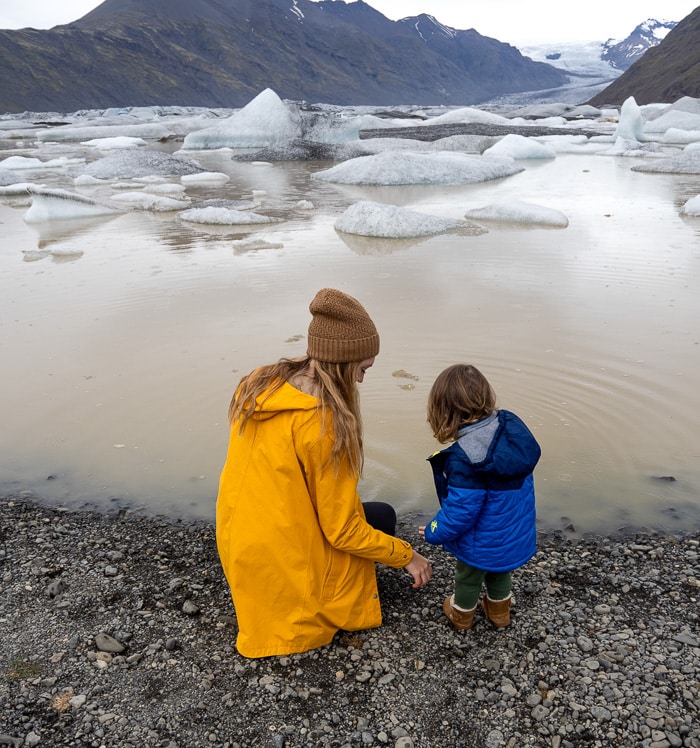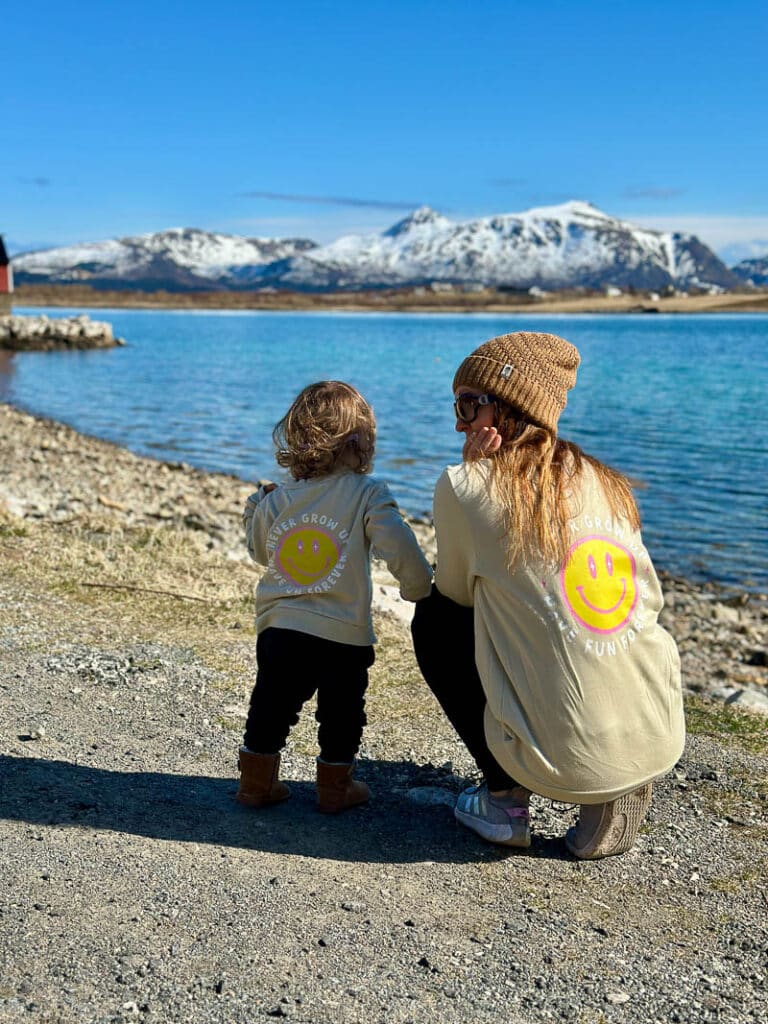How to Pick Travel Insurance for Your Family Trip
Traveling with a family is a fantastic adventure, but it also comes with its fair share of unpredictability. From flight delays to medical emergencies, having the right travel insurance can save you a lot of stress and money.
We learned this the hard way when my son got sick in Indonesia and it turned out that my lousy credit card insurance would cover none of it, so unfortunately, I speak from experience!
Here’s how I go about picking the right travel insurance for my family, based on my own experiences and a few tried-and-true tips:
We have financial relationships with some of these recommended insurance companies and act as an affiliate. However all relayed experiences are my own, and are not all positive:
1. Assess Your Needs

Every family is different, and so are their travel insurance needs. Start by thinking about what’s most important for your trip. Here are some questions to consider:
- Are you traveling internationally or domestically?
- Does anyone in your family have pre-existing medical conditions?
- Are you planning any adventurous activities that might require special coverage?
- How much are you spending on non-refundable bookings like flights and accommodations?
For our first family trip to Japan, I wanted full coverage for our first big international trip, and it turned out that I did use the insurance when I needed to visit the doctor. On another trip to Indonesia, I didn’t research the coverage as well and got burned by my crappy policy.
2. Compare Coverage Options
This brings me to my next point: Not all travel insurance policies are created equal. Key areas to look at include:
- Medical Coverage: Ensure it covers emergency medical expenses, hospital stays, and medical evacuations. Some policies also cover dental emergencies.
- Trip Cancellation/Interruption: This is crucial if you have non-refundable bookings. It reimburses you if you have to cancel or cut your trip short due to covered reasons like illness, injury, or a family emergency.
- Baggage and Personal Belongings: Covers lost, stolen, or damaged baggage and personal items.
- Travel Delay: Provides compensation for additional expenses incurred due to flight delays.
- Emergency Assistance: 24/7 assistance services can help with anything from lost passports to finding local medical care.
Generally, the more coverage you want and need, the more expensive it will be. The more you spent on the trip, the more it will drive the cost as well. We had a weather delay cause us to miss a night in a nice vacation rental I’d booked in the Azores, but since I didn’t have great trip cancellation coverage, I couldn’t get reimbursed.
3. The Plans I’ve Tried

I’ve been traveling for 12 years now, and have tried a lot of insurance policies, most of which have been a mix of good and bad experiences.
I think we have to acknowledge that almost all insurance, including US health insurance, just love the runaround – asking for endless documents, rejecting claims, and trying not to pay out. They all do this, and some poeple have good experiences and others don’t. The more expensive and comprehensive the plan, and the smaller the claim, the less this happens. These have been my experiences:
Faye: I used Faye on our family trip to Japan and once I returned from the doctor’s office with the diagnosis and proof of payment, it was a simple, easy process for getting reimbursed. They’re a bit pricier, but I’d use them again.
Chase Credit Card Insurance: This was NOT a good experience. I made a claim after my son broke out in a rash in remote Indonesia, and we made the decision to fly to Singapore to get him evaluated. We missed accommodations and flights I’d paid for, paid for extra flights and accommodation, and the medical costs. It turned out that none of this was covered in the plan.
Each Chase card has different coverage. It turned out the coverage on my United branded card was pretty crummy, and didn’t cover any medical issues, or missed hotels or flights due to illness. They only informed me of this after almost a year of back and forth paperwork and hours of my time resending the same documents over and over. I came to find this is almost everyone’s experience with Chase coverage, and I won’t be relying on them again.
American Express Platinum Card coverage: I would rely on this solely for flight interruptions and trip delay insurance. Though I haven’t used it myself yet, there are numerous promising Reddit posts about it.
World Nomads: I used to love this insurance, but they really went downhill, and most people claim they are sent on an endless document loop with them.
If you travel multiple times a year, an annual multi-trip policy might be more cost-effective and convenient than buying separate policies for each trip. These policies cover multiple trips within a year and often provide higher coverage limits.
As frequent travelers, we opted for an annual emergency coverage policy that covered all our trips, including those spontaneous weekend getaways, saving us both time and money.
4. Check the Policy Exclusions
Always read the fine print to understand what’s not covered. Common exclusions include:
- Pre-existing medical conditions (unless you get a waiver)
- High-risk activities (unless you purchase additional coverage)
- Pregnancy-related issues after a certain point
- Epidemics and pandemics (though some policies now offer COVID-19 coverage)
Credit card insurance often specifically excludes medical coverage. And almost no policy offers emergency medical evacuation or camera gear coverage. Those are separate policies.
5. Consider Family-Specific Policies

Many insurers offer family plans that cover all members under one policy. These can be more cost-effective and ensure that everyone is covered for the same risks. Look for policies that cover children at no additional cost or offer discounts for families.
Year-long plans can also be great for families that travel often. I never had to make a claim, so I can’t say whether it’s good or not, but Allianz offered one I got when I was pregnant.
6. How Necessary is Insurance, really?

I’ll be honest with you, we haven’t always bothered with insurance. I used to get it for every trip, but eventually, I figured I’d spend less in the long run by just not having it and taking care of issues as they came up.
This worked while I was traveling solo, but with kids, making a claim is just way more likely. Someone could get sick right before a trip, forcing you to miss it, or they might get sick on the trip and plans may have to change on a dime.
I also canceled my gear policy since it was so expensive, but I’ve had a couple of cameras meet too much sand or take an unplanned swim since then, and it would have worked out cheaper to keep the policy. Hindsight is 20/20, especially when it comes to insurance.
Basically, how big is the risk factor and how big is the out of pocket downside? Maybe a doctor’s visit here and there won’t break the bank, but a major emergency definitely could.
7. Medical Evacuation Insurance

On our recent trip to Namibia with my then-13 month old, I wondered to myself if medical evacuation would have been wise. We had a satellite phone and could make a call if needed, but in such remote places with bad roads, how necessary is a policy like that?
Medical evacuation insurance is sometimes sold as a separate policy or addendum to an existing policy. Most travel insurance doesn’t come with this standard, and in rare and heartbreaking occasions people find this out the hard way. MedJet offers plans that can span up to 5 years based on the amount of days per year you travel.
8. Evaluate Customer Service and Reviews
Don’t expect to find any insurance company with raving reviews, but checking out Reddit and Trustpilot can help a bit with real experiences. Look up reviews and ratings for the insurance providers you’re considering. Pay attention to how they handle claims, their responsiveness, and their overall reputation.
9. Read the Fine Print
Finally, always read the policy documents thoroughly before purchasing. Make sure you understand the coverage limits, exclusions, and claims process. If anything is unclear, don’t hesitate to ask the insurer for clarification.
Choosing the right travel insurance for your family might seem overwhelming, but with a bit of research and careful consideration, you can find a policy that offers the protection and peace of mind you need.
*Some links in this post are affiliate links that support us at no extra cost to you when you purchase through them. We only recommend products we love and use ourselves. Your trust always comes first!







